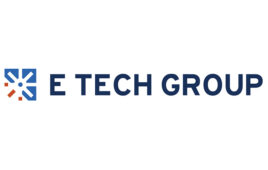Editor’s Note: This whitepaper is written by Harsh Parikh, a senior research analyst from Clinical Research, and Mathini Ilancheran, a lead analyst from Clinical R&D at Beroe.
Abstract
The global medical device industry is growing at a CAGR of 4.4% and is expected to reach USD $440 billion by 2018. 1 Medical device companies are turning to clinical trials to differentiate their Class III/II Products from competitors to improve adoption and value proposition in the market. This has resulted in global medical device companies outsourcing their clinical trial services to CROs with an current adoption rate of 20% to 25%. Other drivers include cost-containment pressures, increasing product pipeline, increasing regulatory demands, IP related issues and more.

The global medical device CRO market is valued at USD $5.2 Billion in 2015 and is expected to grow at a CAGR of 12.5% reaching USD $7.4 Billion by 2018.
Similar to big pharma, device companies are moving towards outsourcing as a way to efficient utilization of operational resources, penetrate new markets and satisfy compliance needs. Traditionally, the supply base for medical device trials has been those players who offer device trials as a standalone service.
Currently, many mid-size and global CROs are entering this market, either through acquisition or colloboration, as a result of increased outsourcing of support services by device companies. Biometrics services involving data management, statistical analysis and data analysis has the highest outsourcing rate among device companies at 65% to 70% followed by clinical trial and site management. 2
Medical device CRO market
The global medical device industry is growing rapidly as a result of technological advancements and increasing patients across the globe. In pharmaceutical drug development, safety for new medical devices is important; devices are subject to clinical evaluation and regulatory review prior to approval and market launch with a primary emphasis on clinical safety.
Due to increasing cost pressure, several medical device companies are moving from fixed costs to a more discretionary model by outsourcing trial services and staffing. This is simultaneously driving the medical device CRO market. The global medical device CRO market is valued at USD $5.2 billion in 2015 and is expected to grow at a CAGR of 12.5% reaching USD $7.4 billion by 2018 (Figure 1). 3, 4
The increased pressure on manufactures for accumulating clinical data has thus increased the number of MedDev clinical trials. Many medical device makers lack the internal resources and expertise to run a complete clinical trial operation in-house. As a result, they are outsourcing clinical operations management, investigator recruitment, clinical monitoring, data management, biostatistical analysis, health economic and outcomes strategy, quality assurance and regulatory approval. Figure 2 summarizes the key drivers and constraints among medical device trials outsouring.
CROs are mainly preferred due to their ability to maintain in-house staff which enables device companies to avoid cost and infrastructure related to employment. CROs also provide operational and financial flexibility through various outsourcing models and have regulatory acumen to execute complex device trials. 5
Regional trends within medical device trials
The U.S. market comprises 45% to 50% of the global medical device CRO market and was valued at USD $2.4 billion in 2015. This market domination is due to its favorable conditions for clinical research and the region’s huge medical devices market of USD $110 billion, which fuels demand for CROs. Even though most CROs are based in the U.S., they also have operations based all around the world.

This has in turn lead to a boom in clinical activities in emerging regions such as India, China, Eastern Europe and Latin America due to low-cost advantage and regional regulatory expertise.
In the recent years, cost-containment pressures in the U.S. have resulted in increased outsourcing of clinical trials to overseas locations. This has in turn lead to a boom in clinical activities in emerging regions such as India, China, Eastern Europe and Latin America due to low-cost advantage and regional regulatory expertise (Figure 3). 3, 4 As the regulatory climate in Asia becomes more stringent, safety concerns ease up, eliminiating trade barriers for companies in Europe and North America. This eventually makes Asia an attractive clinical trial outsourcing destination. It is believed that if medical device companies offshored trials to an efficient supplier; they can save clinical trial time, accelerate data collection and move their product in the global market faster.
Case Study: GlySure Limited successfully conducted Intensive Care Unit (ICU) pilot trial for GlySure continuous intravascular glucose monitoring system in India. Glysure Management gained direct trial costs savings of 50% to 70% compared to U.S. or EU study costs, They also saved 9 to 12 months in development time due to faster regulatory approval processes.
Supplier landscape
The medical device trial outsourcing services are catered by two types of players: CROs and non-CROs. The CROs are segmented: 1) Generalized CROs (Large to Mid-Size Pharmaceutical CROs), and 2) Specialty CROs. The non-CRO players include ITES/BPO, medical communications, consulting firms and more (Figure 4).
There are similarities in the core operational aspects of pharma and medical device clinical trials, but there are also significant differences in the study sample size, trial randomization, and more. The supply market is dominated by specialty and niche CROs at 37% with certain suppliers catering only to device companies. There is also an equal presence of mid-size CROs comprising to 32% of the supply market. Device companies prefer to engage with specialty/niche CROs at an preference level of 38% rather than global top CROs. However, as global CROs are building functional business units to cater to medical device industry, their business from them is expected to increase in the near future.

With the increasing number of MedDev trials at a CAGR of 15% to 20%, many global CROs are building functional business units through mergers and acquisitions (M&As) to cater to medical device industry.
Global Pharma Companies like J&J, Novartis, Allergan, Roche and more also have strong presence in the medical device industry. Many CROs engaging in drug trials with these pharma companies are adding medical device trials as part of their service capabilities through colloborations, hiring experienced staff and more. With the increasing number of MedDev trials at a CAGR of 15% to 20%, many global CROs are building functional business units through mergers and acquisitions (M&As) to cater to medical device industry (Figure 5).
Adaptive trials have increased in medical device industry as they provide more flexibility and ability to monitor on a regular basis. One of the large CRO reported that implementation of adaptive trial design can reduce 35% to 45% of outsourced study costs depending on the type and specific design of the trial.

In addition to service outsourcing, device companies are outsourcing their trial staffing requirements to CROs and staffing companies at 25% to 30%.
Adaptive trial design usage would further increase as more complex and larger size trials are carried out in the device industry. 6 In addition to service outsourcing, device companies are outsourcing their trial staffing requirements to CROs and staffing companies at 25% to 30% (Figure 6). 2, 4 This is mainly due to cost escalation, high local regulatory demand and expertise needed, hence shrinking the in-house staff in the future.
The device industry is expected to see an increase in the trials being conducted in emerging markets; to handle this growth, device companies are anticipated to hire more staff through outsourcing or offshoring.
Sourcing trends
Medical device companies carry out majority of their tasks in-house (75% to 80%) with only 20% to 25% currently being outsourced to CROs. The increasing demands of clinical evidence and more sophisticated clinical trials by regulatory bodies will result in increased number of medical device trials and increased outsourcing of services like data management and analysis to CROs (Figure 7). 7

The increasing demands of clinical evidence and more sophisticated clinical trials by regulatory bodies will result in increased number of medical device trials and increased outsourcing of services like data management and analysis to CROs.
Outsourcing to CROs has helped medical device companies reduce their product development cost by 10% to 30% with more focus on core R&D and distribution and sales. Project/Transactional-based engagement with Functional Service Provider (FSP) model is mostly preferred by device companies with a current adoption rate of 55% and 68% respectively. 7, 8
Majority of the services outsourced by device companies to CROs include functional support services such as data management, site management, biostatistics and more, where the outsourcing model in place is FSP model with engagement signed on project-by-project basis. Many sponsors have a preferred provider engagement with CROs as a result of technical expertise or past engagements with supplier. 8
Fee-for-Service model is the most widely employed pricing model in medical device CRO engagement. Here CRO quotes for a specific scope of work and the sponsor is able to budget with some certainty unless the scope changes. Following this, the unitized structure pricing is practiced at 30% to 35%; here cost is determined based on full and partial day at site for site management and per week or monthly basis. In outsourcing services where scope of work is relatively flexible and open ended, time and materials pricing is preferred. 8
Conclusion
Many global CROs have started adding medical device trials to their service portfolio due to increased medical device trials globally. Sponsors like J&J, Novartis, Allergan, Roche and more, having presence in both pharmaceutical and medical device sector, can scale up both trials to same supply base and leverage volume discounts through a strategic partnership with existing CRO partners. The industry is expected to witness many M&A’s among suppliers in the coming years to increase trial expertise and market share. Supplier engagements are maturing, and we can expect long term strategic and risk sharing deals among device companies and CROs in the future. All these will encourage further outsourcing and offshoring of various device trials services like trial management, patient recruitment which are occasionally outsourced.
References
1. Lucintel. (2015, September). Global Medical Devices Industry 2015-2020-Trend Profit and Forecast Analysis. Retrieved 2016, from Report Buyer: https://www.reportbuyer.com/product/3273393/global-medical-devices-industry-2015-2020-trend-profit-and-forecast-analysis.html
2. Best Practices LLC. (2015). Dove Medical Press. Retrieved 2016, from DocFoc: http://www.docfoc.com/clinical-affairs-excellence-benchmarking-clinical-trial-strategies-for-pharmaceutical
3. FierceCRO. (2013). Devicemakers should rely more upon outsourcing and CROs, study says. Retrieved 2016, from FierceCRO: http://www.fiercecro.com/r-d/devicemakers-should-rely-more-upon-outsourcing-and-cros-study-says
4. Global Data. (2012). Medical Devices Contract Research Organizations. Retrieved 2016, from Research and Markets: http://www.researchandmarkets.com/reports/2152240/medical_devices_contract_research_organizations
5. Medtech Outsourcing: Is the Past Any Indication of the Future? (2014). Retrieved 2016, from NAMSA: https://www.namsa.com/wp-content/uploads/2015/10/WP-MedTech-Outsourcing.pdf
6. Aptiv Solutions. AN INNOVATIVE ADAPTIVE MONITORING METHODOLOGY FOR MEDICAL DEVICE & DIAGNOSTIC TRIALS http://www.iconplc.com/icon-files/docs/thought-leadership/premium/AptivSolutions-WP_AptivInsite_Final_June2013.pdf
7. The Avoca Group. (2015). Medical Device Industry Survey. Retrieved 2016, from The Avoca Group: http://www2.theavocagroup.com/knowledge-center/reports/medical-device-industry-survey
8. Novella Clinical. (2012). Novella Clinical. Retrieved 2016, from Best Practices in Outsourcing Clinical Trials for Medical Device Companies: http://novellaclinical.com/content/uploads/2014/08/MedDev-Best-Practices-in-Outsourcing-Novella-Clinical-White-Paper.pdf






